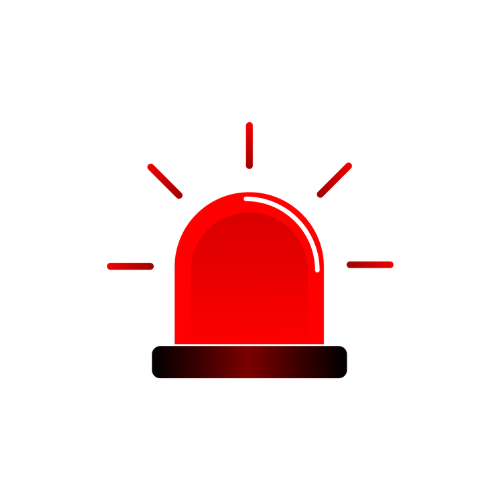Panic attacks are sudden episodes of intense fear and anxiety that can be extremely distressing. They can strike without warning, leaving individuals feeling overwhelmed and out of control. Given the debilitating nature of panic attacks, many people seek a definitive cure to eliminate them from their lives. In this blog post, we’ll explore the concept of a “cure” for panic attacks, effective treatments available, and strategies to manage and reduce their occurrence.
Understanding Panic Attacks
A panic attack is a sudden onset of intense fear or discomfort that peaks within minutes. Common symptoms include:
- Rapid heartbeat
- Sweating
- Trembling or shaking
- Shortness of breath
- Chest pain
- Nausea or abdominal distress
- Dizziness or lightheadedness
- Chills or hot flashes
- Numbness or tingling sensations
- Feelings of unreality or detachment
- Fear of losing control or dying
Panic attacks are a symptom of panic disorder but can also occur in other anxiety disorders and stressful situations.
Is There a Cure for Panic Attacks?
The term “cure” implies the complete and permanent eradication of a condition. While there is no single, guaranteed cure for panic attacks that works for everyone, there are highly effective treatments and strategies that can significantly reduce their frequency and severity. With the right approach, many people find long-term relief and may even reach a point where panic attacks no longer disrupt their lives.
Effective Treatments for Panic Attacks
Several evidence-based treatments have proven effective in managing panic attacks. These treatments can help you understand and control your symptoms, leading to significant improvement over time.
1. Cognitive Behavioral Therapy (CBT)
CBT is considered the gold standard for treating panic attacks. It focuses on identifying and challenging negative thought patterns and behaviors that contribute to anxiety. CBT helps you develop healthier ways of thinking and reacting to stress, reducing the likelihood of panic attacks.
2. Medications
Medications can be an effective part of treatment, especially for those with severe or frequent panic attacks. Personally, I prefer the natural route, but that’s a personal choice. Commonly prescribed medications include:
- Selective Serotonin Reuptake Inhibitors (SSRIs): These antidepressants help regulate serotonin levels in the brain, reducing anxiety.
- Benzodiazepines: These fast-acting anti-anxiety medications can provide immediate relief during a panic attack but are generally prescribed for short-term use due to the risk of dependence.
- Beta-Blockers: These medications can help manage physical symptoms such as rapid heartbeat.
3. Exposure Therapy
Exposure therapy involves gradual and controlled exposure to the sensations and situations that trigger panic attacks. Over time, this helps reduce the fear and avoidance behaviors associated with panic attacks.
4. Mindfulness and Relaxation Techniques
Practices such as mindfulness meditation, deep breathing exercises, and progressive muscle relaxation can help reduce overall anxiety levels and improve your ability to manage stress.
Lifestyle Changes to Support Treatment
In addition to formal treatments, certain lifestyle changes can support your efforts to manage panic attacks:
1. Regular Exercise
Physical activity releases endorphins, which can improve mood and reduce anxiety. Aim for at least 30 minutes of moderate exercise most days of the week.
2. Healthy Diet
Eating a balanced diet, staying hydrated, and avoiding stimulants like caffeine and nicotine can positively impact your overall mental health.
3. Adequate Sleep
Getting enough sleep is crucial for emotional and physical well-being. Establish a regular sleep routine and create a relaxing bedtime environment.
4. Stress Management
Incorporate stress management techniques into your daily routine, such as yoga, meditation, or journaling.
Developing a Personalized Coping Plan
Creating a personalized coping plan can help you manage panic attacks more effectively. Here’s how to develop one:
- Identify Triggers:
- Keep a journal to track situations, thoughts, or activities that trigger your panic attacks.
- List Immediate Coping Techniques:
- Choose a few immediate coping skills that work best for you and write them down.
- Outline Long-Term Strategies:
- Incorporate lifestyle changes, exercise, mindfulness practices, and therapy into your routine.
- Create a Support System:
- Identify people you can reach out to for support and include their contact information in your plan.
- Practice Regularly:
- Practice your coping skills regularly, even when you’re not experiencing a panic attack, to make them more effective during times of need.
Conclusion
While there may not be a one-size-fits-all “cure” for panic attacks, effective treatments and lifestyle changes can lead to significant improvement and even complete remission of symptoms for many individuals. By combining evidence-based therapies, medications, and personal coping strategies, you can manage and reduce the impact of panic attacks on your life.
Remember, seeking help from a mental health professional is crucial for developing a comprehensive treatment plan tailored to your needs. With the right support and tools, you can regain control and move towards a life free from the debilitating effects of panic attacks.

